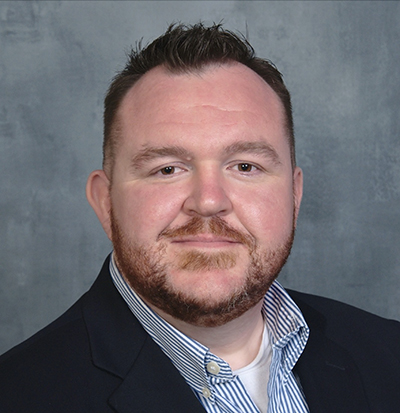40 under 40: Dr. Cory Lowe, senior research scientist, LPRC

By Cory Harris, Editor
Updated 6:27 AM CDT, Wed June 7, 2023

YARMOUTH, Maine—Dr. Cory Lowe, 36, is the senior research scientist at the Loss Prevention Research Council (LPRC), a loss prevention/asset protection research organization combating theft, fraud, and violence based out of Gainesville, Fla. Find out what inspired him to pursue a career in the security industry, what being a "40 under 40" winner means to him, what appeals to him about the security industry, and more.
SSN: Describe your roles, duties, and tenure at your current job.
 LOWE: At the Loss Prevention Research Council, I lead the research team as we study various topics in loss prevention and crime prevention. I have been with the LPRC since early 2020.
LOWE: At the Loss Prevention Research Council, I lead the research team as we study various topics in loss prevention and crime prevention. I have been with the LPRC since early 2020.
SSN: What inspired you to pursue a career in the security industry?
LOWE: My family background inspired me to study crime. Several close members of my family have histories involving substance abuse and crime, and I wanted to understand why. I also wanted to understand how I could prevent others from experiencing the pain I have experienced because of crime and substance abuse. I also wanted to follow in my grandfather's footsteps and build a legacy of doing something good in the world.
SSN: What does being named a winner of SSN's 40 under 40 mean to you?
LOWE: Winning SSN's 40 under 40 means that someone noticed the amazing things we are doing as a team at the Loss Prevention Research Council. I probably would not have been nominated if I wasn't working with such an amazing team.
SSN: As a young leader, what appeals to you about the security industry?
LOWE: The security industry is appealing for a few reasons. First, there is a lot the industry needs to learn - this gives me a lot to do as a researcher. Second, everyone in the industry is dedicated to the common mission of protecting vulnerable people and places - I appreciate being able to work with so many people who are driven by the same positive goal. Third, most activities that we recognize as good would be impossible without the work of the security industry.
Security is of fundamental importance to the functioning of a free society; security produces stable and predictable contexts in which students can learn, parents can buy groceries, grandparents can take their grandkids to a baseball game, and everything else we get to do because we live in a relatively safe and secure society. It often feels like American society takes some of this security for granted, so the industry is more important than ever. Selfishly, I want to do the same things with my grandkids that I did with my grandfather.
SSN: With the hiring, recruitment and retention challenges brought on by the COVID-19 pandemic, how can the security industry engage young talent?
LOWE: Target low-level employees with grit and a head on their shoulders that are already working in the industries you serve. Most young people do not know about all of the opportunities in the security industry, and many of the brightest minds I have encountered started at relatively low positions. For example, many in retail loss prevention worked their way up from store positions, and many only pursued higher education once they had established their careers.
I dropped out of the first college I attended because of family issues, and I only went back because I felt like I couldn't make something of myself without a piece of paper. I ended up getting every piece of paper from an associate degree to a Ph.D. All of that time could have been spent learning practical skills on the job.
College enrollment is declining, and, in my experience, college degrees are a poor indicator of competence. In fact, even a 4.0 GPA doesn't mean much because of declining standards and grade inflation. So, as an industry, we are going to have to focus on identifying young talent already in the workforce and then investing in them by training them.
Comments